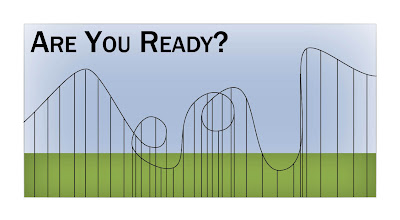When I go to meet a client at the beginning of new projects that I have been assigned to lead, I often bring along coworkers or subordinates who will also be working on the project. Before the first meeting, my client speaks only with people who are in the equivalent of sales positions, so it is often the first time the client meets any of our engineers. We all are dressed in equivalent business casual wear, and carry matching folders and pens. I wear my hair in neat, professional styles and wear simple makeup. I give a firm handshake, and look my clients directly in the eyes. I am also always the only woman not only in my team, but in the entire meeting.
Regardless of my efforts to make stellar first impressions, about 80% of the time clients who don't know me presume my subordinates or coworkers are my boss. This includes times when they are handed a piece of paper that reads "Vanessa - Project Lead" at the beginning of the meeting. It's actually quite fascinating to watch, because you could probably hold a billboard with an arrow pointing to me proclaiming "SHE'S THE BOSS" but the average client would still dismiss it.
 |
| Yes, I know she's the same in both halves. But how my behavior doesn't change just because others perceive it differently. |
Client: "Vanessa can you ask Joe if you can work late?"
Me: "I'm more than happy to stay."
Client: "Do you want to clear it with Joe?"
Me: "It's fine, Joe doesn't determine my work schedule. He's actually working on this project for me."
Client: "Okay... if you are sure."
And when your coworkers see that people already think they are the boss, it gives them an opportunity to easily usurp whatever power you have been given on a project. Sometimes, people in my office who are unrelated to the project start to pose as my boss for no particular reason, adding to the confusion.
Client: "Luke told me that he was going to pull you off site on Tuesday for some paperwork in your home office. Will this have an impact on your deadline?"
Me: "Oh really? I hadn't heard that before."
Client: "Well he said he's pulling you back..."
Me: "I can ask my boss, David. But Luke is a support engineer, so he shouldn't need to me back for anything."
(Note: I was never supposed to leave site, but Luke did apparently that to my client. I'm still unclear as why this happened.)
This may surprise you but my first reaction was not to blame my client's reactions on my gender, but to try and evaluate how I could change these impressions. Was it something about how I act, how I carry myself, how I dress or how I speak?
But when clients who knew me continuously complimented my professionalism and called me directly with future projects, I realized that upon first impression the main thing that makes me appear to be anything less than my teammates is actually my gender. There are so few women in my industry in general, that people don't usually assume a woman is an engineer- let alone a technical lead.
But so what? As long as my clients are happy, my bosses don't really care who leads a project. If I start as project lead and other people take over the project, then it will seem like I am incompetent. Appearing incompetent will actually make me less likely to get raises, get promotions, and be designated as the project lead in the future. The problem with the initial "who's the boss" mix up is every time I have a new client I fight an uphill battle to prove the competency I've proven to my bosses and coworkers over the years as quickly as possible.
I know the initial assumption that a woman isn't the boss doesn't have the same impact at every engineering organization, and in some more female dominated fields it probably isn't even an issue anymore. But for positions like mine the slight undertone of sexism makes it just a little harder to earn respect for the work I do. It's not that I think that the people who make these assumptions intend to be vicious, or make my life harder. I barely know them at the time, so I doubt that they have some evil plan for my professional demise. Perhaps the worst part is that I can't say that I would make any different assumption if the tables were flipped, because honestly a woman in a leadership position in my industry is extremely unusual.
It's because of this that organizations that promote female engineers are so important. Because, in the "real world" there are still undertones of sexism that will only be solved by a ton of amazing female engineers dealing with uncomfortable situations, and proving that gender is irrelevant measure of engineering prowess one client at a time.
Love,
Vanessa



























